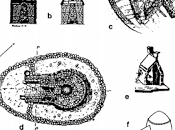
Year of first publication: 1991
Genre: novel
Country: Canada / Tanzania / India
Nurdin Lalani is new in Toronto. He arrived with his family from East Africa, where his father had moved in 1906 from India, his country of origin, when Germany employed Indians to build their empire in Tanganyka. Nurdin can’t find a job in Toronto because he has no “Canadian experience”, in spite of having sold shoes in his country for eight years. All he can get are degrading menial jobs. He lives in an apartment building called Sixty-nine, full of immigrants, many are East Africans of Indian origin, like him. The immigrants have business going on in the building: they cook samosas and chapattis to take away, they offer babysitting services and open-houses. Nurdin and his family experience racism and attempts of exploitation when, newly-arrived in town, they are all invited to a party, which reveals to be a strange kind of fashion show. Moreover, a friend is beaten up by locals - only he reinvents himself as a painter and goes back to Dar, becoming a fashionable exotic artist for Western tourists. Nurdin bonds particularly with two people from his community: a part-time university professor called Nanji who once had a girlfriend in New York but is now lonely and lives in a unfurnished apartment, and Jamal, a succe
 ssful lawyer who likes expensive cars.
ssful lawyer who likes expensive cars.One day Nurdin gives shelter for one night to a couple visiting from Guyana (he didn’t even know where Guyana was, but he had heard there were Indian people there too!) and he’s offered a job by his host’s brother, Romesh. Romesh gives him pork sausage to eat, therefore Nurdin reflects on the prohibition to eat pork. He thinks that’s when he began to “rot”. He’s changed, his well-educated friend Nanji tells him, after having eaten pork. After that, Romesh offers him a sip of his beer and takes him to a peep show. Nurdin even starts a “romantic friendship” with a lady he knew back in Dar. He feels guilty because he’s being “corrupted” by the Western way, the Canadian way. In spite of considering the CN Tower a sort of lighthouse, his fixed mark in his new country, he's confused by a new whirlwind of experiences and temptations.He offers help to a girl who is crying but she accuses him of rape (echoes of “A Passage to India” are blatant here). Ironically enough, the girl is also from an immigrant community, the Portuguese who abound in Toronto. The novel finishes with Nurdin and Jamal fixing the situation by promising help to come to Canada to the girl’s relatives in Portugal (Jamal is an influential lawyer by now and he lies by saying he is about to open an office in Lisbon).
It’s the usual immigrant-in-a-new-land-novel, only some coordinates are different: the émigré is from Dar es Salaam, but eats samosas while he drinks gallons of tea, and the new city is Toronto, instead of New York or London. The title of the novel nonetheless suggests that the land where Nurdin and his friends have settled is not new, but it has seen many other “layers of migrations”: the English and the French first, the Portuguese and the Italians after that, and the Africans at last. “No New Land” is well-written, but could have elaborated more on some topics (for example, when Indians are sent away from Uganda and neighbouring countries or on the situation of feeling East African but being Indian and identification – or non identification – with other Indian people).
About the author: M.G. Vassanji was born in Kenya, from a family of Indian origin. He was raised in Tanzania and moved to Toronto, Canada, in 1978. He's now considered one of Canada's most acclaimed writers. He has published six novels (The Book of Secrets and The In-between World of Vikram Lall are some other titles), two collections of short stories, a memoir of his travels in India and a biography of Mordecai Richler.





